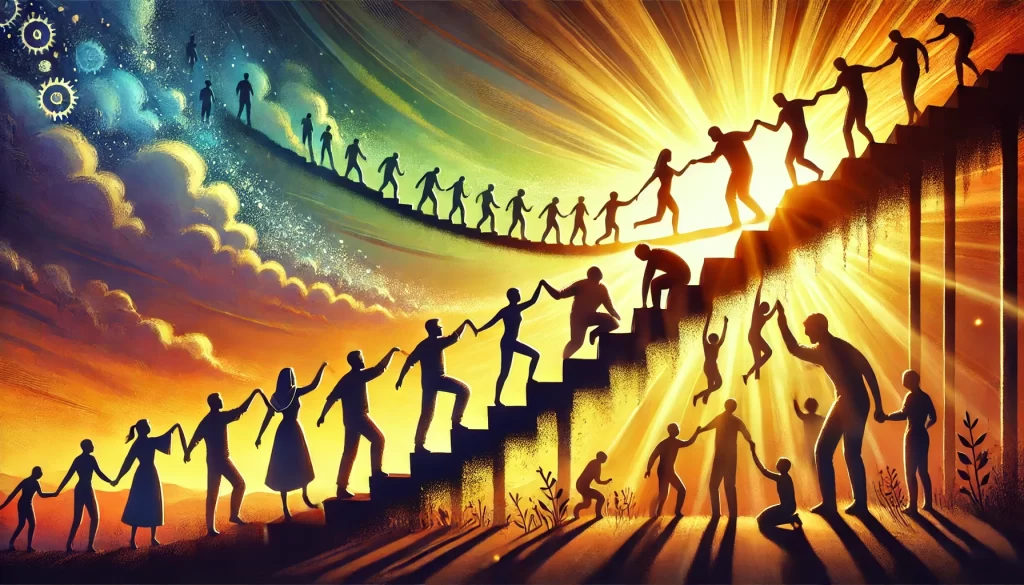
Some people build products. Others build companies. But the work I’ve come to love most – the work that energizes me every morning – is building people. Not in the abstract, theoretical way we sometimes toss around in leadership circles. But in the trenches, in real time, through the process of building a world-class team.
That phrase – world-class team – often gets thrown around like a buzzword. In my world, it means something deeply human. It means people who are trusted, seen, and challenged. It means alignment without uniformity, ambition without ego, and collaboration that doesn’t require convincing. Building that kind of team isn’t just about hiring the smartest or most skilled – it’s about cultivating a culture where growth is not just encouraged, but expected. Where each person knows they matter, and that the team is stronger because they’re part of it.
I’ve always been drawn to the puzzle of value creation – understanding needs, uncovering gaps, and crafting thoughtful solutions. That part is exciting, and yes, it scratches the builder’s itch. But it doesn’t come close to the deeper satisfaction of seeing someone rise. Of watching potential transform into performance. Of being the quiet catalyst behind someone’s growth. That is where the magic is. That is the joy.
I don’t see my job as managing tasks or overseeing deliverables. I see it as creating an environment where people can stretch. Where they’re encouraged to get uncomfortable, to experiment, to fail forward, and to find their voice. That’s not soft work. That’s strategic work. It’s the kind of leadership that doesn’t always show up on org charts or OKRs, but is deeply felt in culture, in momentum, and in results.
The management thinker Peter Drucker once said, “Culture eats strategy for breakfast.” I’d go a step further and say: People eat both culture and strategy for breakfast. Because no matter how brilliant your plans, how elegant your framework, or how clear your roadmap, if your team is disengaged or misaligned – or worse, fearful – none of it moves. But when you build a team of people who feel safe, seen, and stretched, the momentum is unstoppable. Strategy finds traction. Culture becomes self-sustaining. Value becomes inevitable.
That’s the paradox most leaders miss. They chase performance without investing in the people who drive it. They set targets but forget to nurture trust. They create incentives but not meaning. But meaning is what fuels the long game. And meaning doesn’t come from KPIs. It comes from relationships.
Over the years, I’ve stopped thinking about leadership as a role and started thinking about it as a responsibility – one that’s less about direction and more about development. It’s not about having the answers. It’s about creating the conditions where others can discover theirs. It’s about being the scaffolding, not the spotlight.
And here’s the thing: building people is not a distraction from building value – it is how value is built. There’s no sustainable innovation, no enduring success, no real impact without deeply invested people. The job of leadership, then, is not to be the smartest person in the room, but the one most committed to helping others get there. To turn energy into focus. Curiosity into capability. Potential into performance.
In many ways, building a team is like designing a flywheel. At first, every push feels slow. Heavy. Repetitive. But over time, with consistency, trust, and shared purpose, something remarkable happens: it starts to turn on its own. Momentum builds. People anticipate each other. Friction gives way to flow. And suddenly, you’re not the engine anymore. You’re part of a system that runs because everyone owns a piece of it.
That’s the moment I live for – not when I’ve solved a complex problem, or delivered on a project, but when I look around and see people stepping into roles they didn’t think they were ready for. When someone who once needed guidance is now giving it. When someone else’s success feels like your own. Because in a world obsessed with scale, I’ve learned that the most exponential thing you can build is people.
So yes, I care about outcomes. I care about results. But more than anything, I care about the people who get us there. Because when you build the right team, everything else becomes possible.
And when you don’t – nothing else really matters.